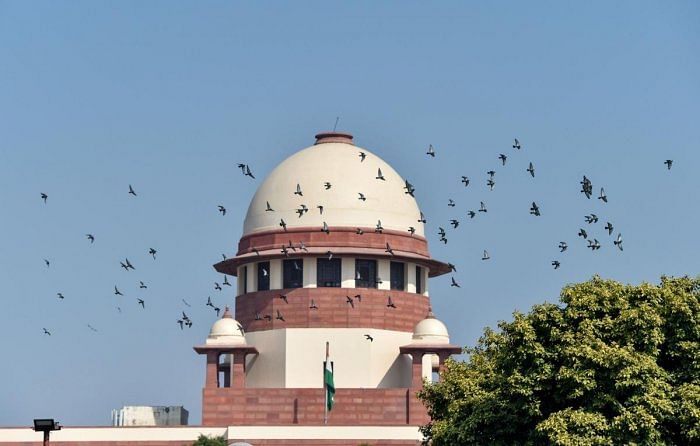
The Supreme Court on Monday held that the Governor is not denuded of the power to order a floor test in a running Assembly when it is required to ascertain if the government enjoyed the majority in House.
A bench of Justices D Y Chandrachud and Hemant Gupta held that it would not be correct to say that the constitutional authority entrusted to the Governor to require the Council of Ministers to prove their majority on the floor of the House can only be exercised at the very inception after general elections.
"The power under Article 174 of the Constitution to summon the House and to prorogue it is one which is exercised by the Governor on the aid and advice of the Council of Ministers. But in a situation where the Governor has reasons to believe that the Council of Ministers headed by the Chief Minister has lost the confidence of the House, constitutional propriety requires that the issue be resolved by calling for a floor test," the bench said.
The court, however, said the Governor must exercise this "exceptional" power with "caution" and "objective material".
"The Governor is an appointee of the President but does not represent either a political ideology or a political view. The Governor is expected to discharge the role of a constitutional statesman. The authority of the Governor is not one to be exercised in aid of a political dispensation which considers an elected government of the day to be a political opponent," the bench said.
The top court delivered its detailed 68-page judgement on the Madhya Pradesh political saga, triggered by resignations of 22 Congress MLAs, owing allegiance to senior leader Jyotiraditya Scindia. On March 19, it had ordered the floor test, leading to resignation of Chief Minister Kamal Nath and swearing-in of rival BJP leader Shivraj Singh Chouhan.
It upheld MP Governor Lalji Tandon's order to conduct floor test on March 16, saying there existed no extraordinary circumstances for him to determine that a trust vote was not the appropriate course of action.
Relying upon the previous decisions by nine-judge bench decision in S R Bommai case (1994) and five-judge bench in Nabam Rebia case (2015), the court said when the Governor had objective reasons to believe that the incumbent government does not command the confidence of the house, his call for a floor test cannot be construed beyond the bounds of constitutional authority.
The court rejected a contention by senior advocates A M Singhvi, appearing for the then Assembly Speaker and Kapil Sibal for Kamal Nath that the Governor can order floor test at the initiation of the Assembly.
However, the court said the if the exercise of the discretion by the Governor to call a floor test was challenged before the court, it would not be immune from judicial review.
Dwelling further into the Governor's power, the court said it must be noted that he does not decide whether the incumbent government commands the confidence of the house.
"It is necessary that the Governor bears in mind that the purpose underlying the entrustment of the authority to require a trust vote is not to displace duly elected governments but to intervene with caution when the circumstances...indicate a loss of majority. This power is granted to the Governor to ensure that the principle of collective responsibility is maintained at all times and must be exercised with caution," the bench said.
The decision of the Governor to do so is not immune from judicial review and must, therefore, withstand the ability to be scrutinised on the touchstone of the circumstances being relevant, germane and not extraneous to the exercise of an exceptional power, vested in the Governor, the bench added.
